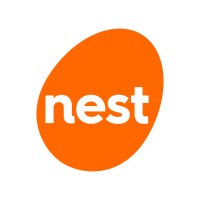

Python Modelling Engineer – Digital Twin & Simulation
⭐ - Featured Role | Apply direct with Data Freelance Hub
This role is for a Python Modelling Engineer – Digital Twin & Simulation, offering a 6-month hybrid contract in London. Key skills include C++, Python, agent-based modelling, and experience with Kafka, Docker, and cloud infrastructure.
🌎 - Country
United Kingdom
💱 - Currency
£ GBP
-
💰 - Day rate
-
🗓️ - Date discovered
August 15, 2025
🕒 - Project duration
More than 6 months
-
🏝️ - Location type
Hybrid
-
📄 - Contract type
Unknown
-
🔒 - Security clearance
Unknown
-
📍 - Location detailed
London, England, United Kingdom
-
🧠 - Skills detailed
#Data Management #AI (Artificial Intelligence) #Distributed Computing #Cloud #Python #Docker #Kubernetes #Programming #Documentation #Databases #Data Pipeline #Datasets #"ETL (Extract #Transform #Load)" #Metadata #Security #Kafka (Apache Kafka) #C++ #Data Engineering
Role description
Python Modelling Engineer – Digital Twin & Simulation
London - Hybrid
6 Months + Extensions
Our client, a pioneering technology company, is seeking a Software Engineer specialising in Python, Digital Twin Cities and Modelling to develop and refine AI-driven simulations. This role will involve building large-scale models to support complex decision-making in urban planning, infrastructure, and beyond.
Key Responsibilities:
• Develop, optimise, test and deploy software models using C++ and Python.
• Work with mathematical modelling paradigms such as agent-based, event-based, and system dynamics modelling.
• Write production-quality code, ensuring best practices in performance, security, and maintainability.
• Scale large-scale simulations, extracting meaningful insights from vast datasets.
• Work with Kafka, Docker, Kubernetes, Helm.
• Design and optimise data pipelines, databases, and metadata management.
Skills & Experience:
• Strong programming skills in C++ and Python.
• Experience with modelling and simulation tools, ideally in agent-based modelling.
• Proficiency in distributed computing, cloud-based infrastructure, and database optimisation.
• Knowledge of data engineering techniques and metadata management.
• A holistic approach to software development, including testing, documentation, and security.
• Strong problem-solving skills and the ability to collaborate effectively within a multidisciplinary team.
If you’re passionate about simulation technology and want to work on cutting-edge AI-driven models, apply now or get in touch for more details.
Python Modelling Engineer – Digital Twin & Simulation
London - Hybrid
6 Months + Extensions
Our client, a pioneering technology company, is seeking a Software Engineer specialising in Python, Digital Twin Cities and Modelling to develop and refine AI-driven simulations. This role will involve building large-scale models to support complex decision-making in urban planning, infrastructure, and beyond.
Key Responsibilities:
• Develop, optimise, test and deploy software models using C++ and Python.
• Work with mathematical modelling paradigms such as agent-based, event-based, and system dynamics modelling.
• Write production-quality code, ensuring best practices in performance, security, and maintainability.
• Scale large-scale simulations, extracting meaningful insights from vast datasets.
• Work with Kafka, Docker, Kubernetes, Helm.
• Design and optimise data pipelines, databases, and metadata management.
Skills & Experience:
• Strong programming skills in C++ and Python.
• Experience with modelling and simulation tools, ideally in agent-based modelling.
• Proficiency in distributed computing, cloud-based infrastructure, and database optimisation.
• Knowledge of data engineering techniques and metadata management.
• A holistic approach to software development, including testing, documentation, and security.
• Strong problem-solving skills and the ability to collaborate effectively within a multidisciplinary team.
If you’re passionate about simulation technology and want to work on cutting-edge AI-driven models, apply now or get in touch for more details.





